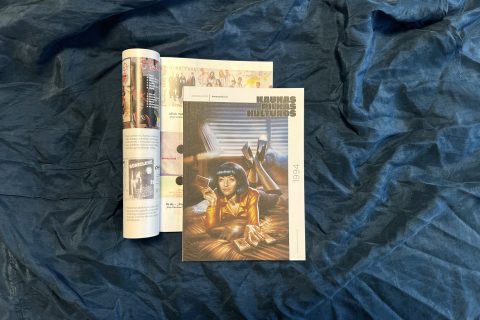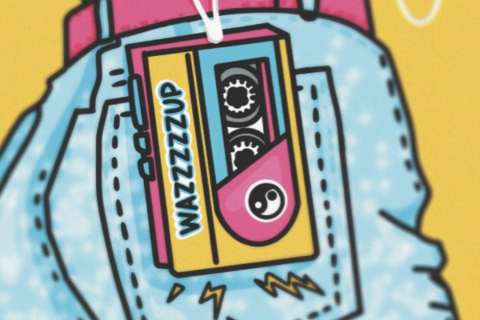We have created many new industries in about three decades of learning how to do capitalism in an independent country. After the fall of the evil empire, music companies also flourished, some of which naturally became big businesses or even business empires. If I had to describe it simply, this text is about one of the kings of Lithuanian pop music: Alvidas Tautkus, the founder of the band Rondo and Pop Centras, who has been in this business since 1976.
A collection worthy of a museum
We meet with the interviewee in his office, at the “little Laisvės Avenue” or, in other words, in a section of Laisvės Avenue between Vytauto Avenue and Trakų Street. The office is located in the former estates of Julija Yčienė (the daughter of Jonas Šliūpas) and the famous lawyer Martynas Yčas, right next to the former Soviet Russian Embassy. The house is one of the remaining authentic wooden buildings in the New Town, where the demand for real estate has been high for a century.
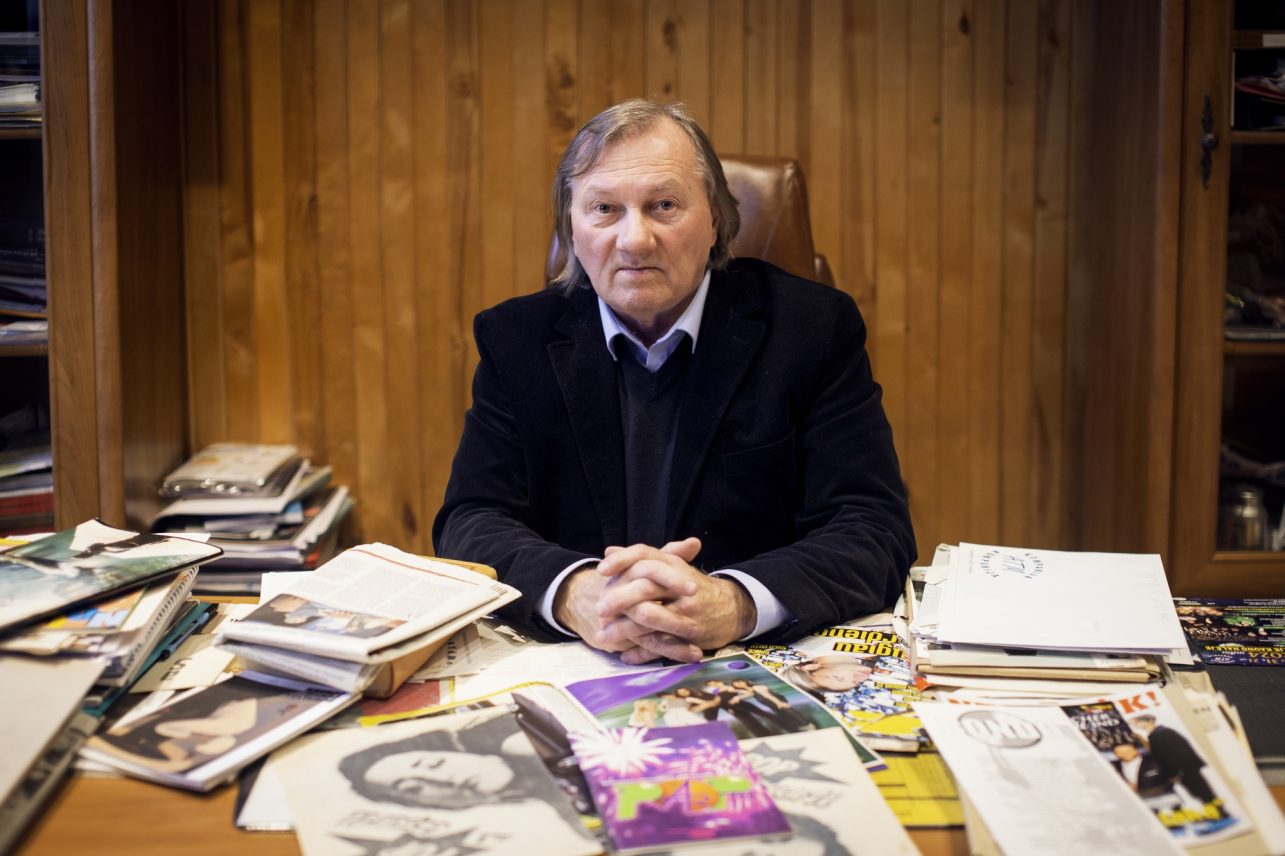

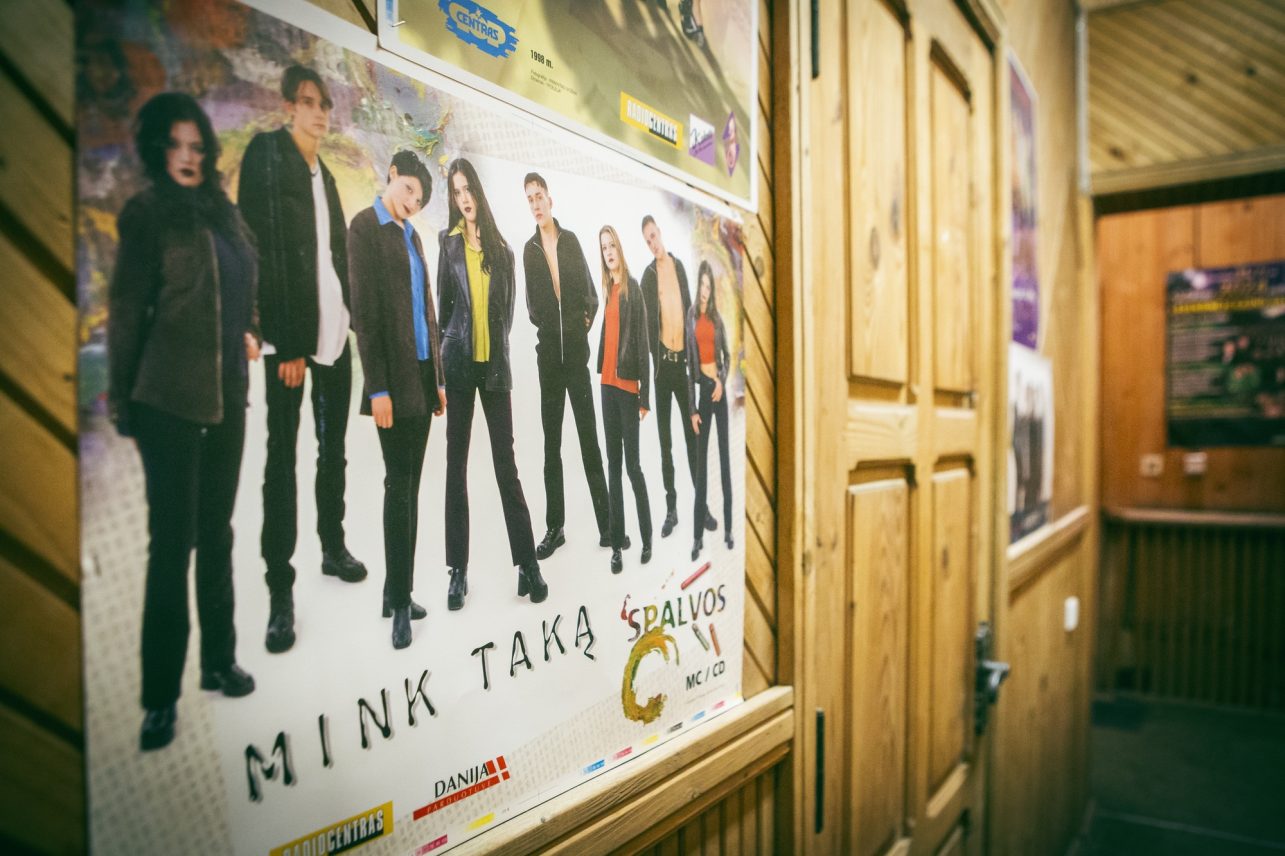
Well, there are even more stories inside. To tell the truth, if Alvidas Tautkus was not a music business tycoon, perhaps he would have become a talented historian or archivist because the size of the collection and the impeccable order amaze even those who have seen everything.
I can see historical photos of the most famous Lithuanian musicians, active and not so much, moments from famous foreign artists’ shows and their wishes, copies of publications, consistently collected numerous newspaper clippings, etc. I am rather envious – if only I had cataloged all the important events in my life this way.
Musician genes
The story is well known to everyone: Alvidas Tautkus is the founder of one of the oldest active Lithuanian bands Rondo and is hugely responsible for its success. Although he no longer has anything to do with the current line-up of the band, and this has been widely reported in the press, it would be wrong not to mention the roots of the Lithuanian pop music boss.
“We were inspired by none other than the guys from Hiperbolė (a famous rock band, ed.) I lived in Raseiniai, I was in my twenties and wanted to organize their concert in my hometown. It was then that we caught the music bug and felt the urge to create. My brother and I put together an ensemble, and after that, everything happened very quickly and continues until now,” Kaunas resident says.
Music is passed down from generation to generation in the Alvidas and Gintautas Tautkus family, so the young men’s chosen career path did not surprise anyone. One of the most famous members of this family is Česlovas Šidlauskas, who is a conductor, teacher, head of the wind instrument department’s orchestra at the Kaunas J. Gruodis Conservatory and founder of the first Lithuanian wind orchestra Politechnika.
All from Moscow
“We were sort of doing business, but everything was supervised. Sometimes we played 7 concerts in a row in one city. The Red Komsomols supervised both Hiperbolė and us. We didn’t see any accounting, which was very shady,” A. Tautkus recalls.
Getting the necessary equipment was not easy in those days either. But there were still Western, modern instruments in the stagnant Soviet Union. According to the interviewee, there were rumors that the children of the party officials would import musical equipment in exchange for natural resources. It was organized on a large scale, full wagons.
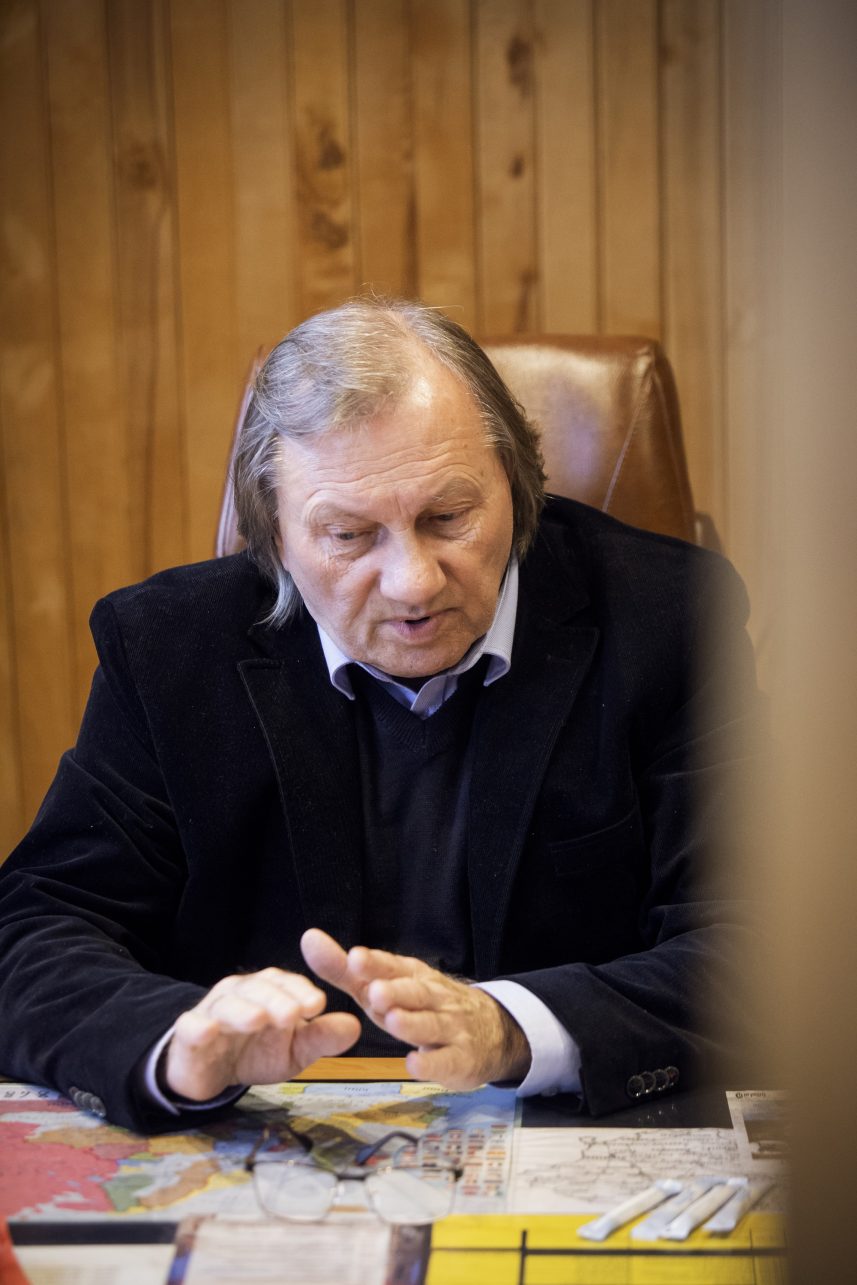
“There was no physical store, but you would find musicians, bring them some Lithuanian vodka, snacks, party for a few days, and then they would give you access to that equipment. It was stored in some warehouses in Moscow. When you were used to working with locally manufactured technology, that Western one was like a miracle, true quality,” the founder of Rondo continued.
The interviewee doesn’t recall strong censorship, persecution, or removal of certain texts, although there were attempts to talk about freedom, “Balys Sriubas, who wrote lyrics for us, used the Aesopian language. Besides, we are all from Šiluva, from the holy lands, Lithuanianness has always been important.”
“By the way, I was born in a house that now has a memorial plaque informing people that A. Ramanauskas-Vanagas was sheltered here. His sister was a teacher, and my parents were also teachers, so even though I don’t know the exact connection anymore, there were some of these points of convergence in the area,” the businessman says.
Transformations
In 1991 Alvidas Tautkus left the stage and ended his career as a performer. He opens up that even during those days when he actively performed, he was a more capable manager and organizer than a creator, so it was a natural turn in his musical career. It was that year that the famous Pop Center was founded.
“We consider this date as a start of our activity, but the first ideas came about much earlier. A few years before that, we had founded the Kaunas Popular Music Club, which united like-minded people. The government allowed this type of structure if you wanted to bring together people, who shared common interests,” the businessman says. It was within the framework of this club that one very important concert took place – the performance of Nazareth in the Kaunas Sports Hall in 1990. This was their first concert in Lithuania and also the first visit of foreign popular musicians to Kaunas.
“Tickets were several times more expensive than usual at that time. We all thought that people wouldn’t be able to afford such tickets. But when the sales were announced in the Student Square, there was a queue at the ticket office for two days. We even had to hire an armed guard for cash,” the interviewee recalls the wild times.


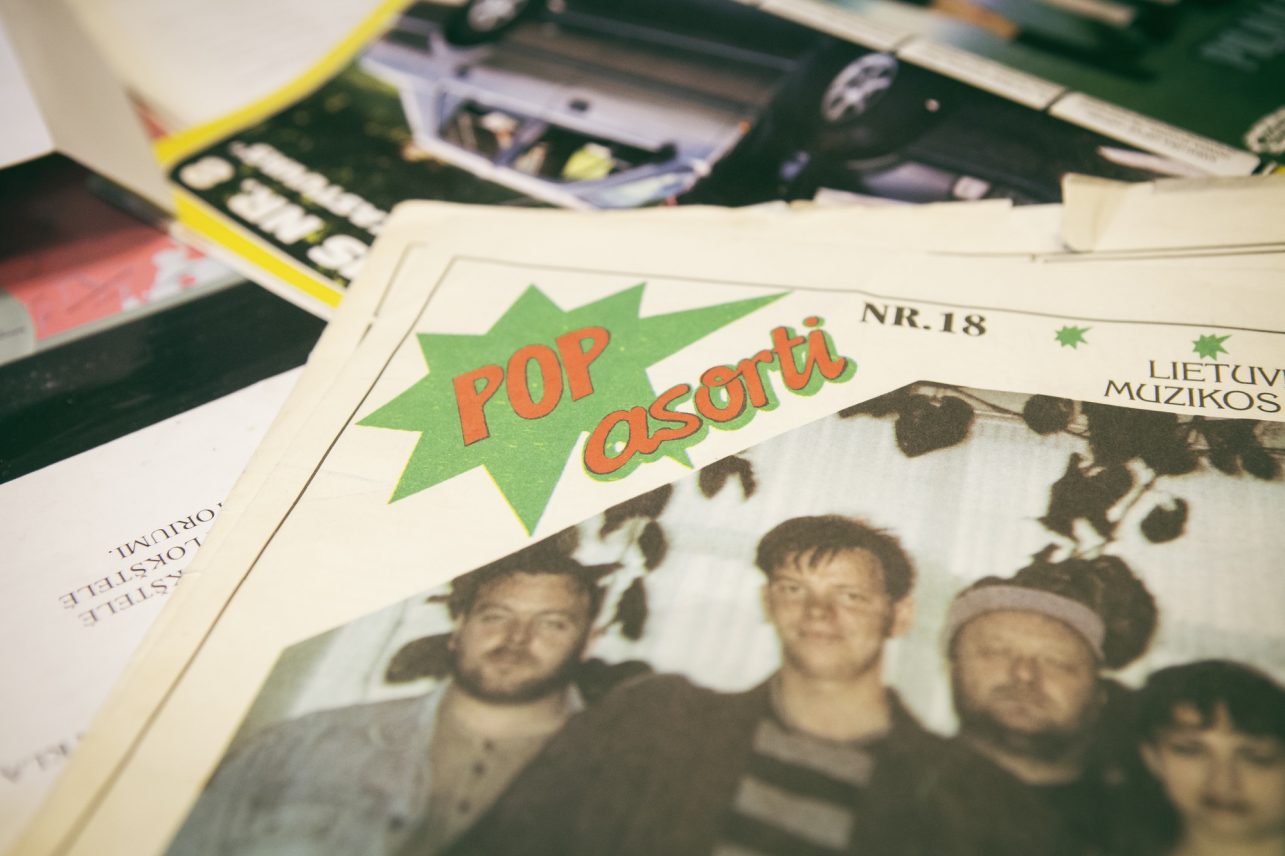
Much like the society, Lithuanian music underwent a huge transformation. Foreign influences opened for us. During the existence of the evil empire, the most popular were Hiperbolė, Rondo, Studija, and Vairas. But even my generation – although I was born later than Pop Centras – knows what happened after 1990: Džordana Butkutė, Dinamika, the silver-tongued Ekspresas, forever in love Mercy Dance, and countless others.
Business development
Kaunas becomes the cradle of a new musical wave, as the Schlager music morphs into pop. Our interviewee, next to Pūkas and MEGA Records, occupies perhaps the most important place in this episode of local music history.
“At one time, our activities consisted of producing at least two radio shows, a newspaper, album releases, festivals, a nightclub, a sound recording studio, and video recording studios. And probably something else that I can’t remember now. We covered a wide range of things and were able to operate in a wide variety of spheres,”A. Tautkus continues.
With the new wave of music came a completely new medium of its consumption: music videos. During the golden age of television, various artists’ video clips were broadcast on LTV’s show Piramidė and later on PopTV, which became popular on Tele3.
“There were no creative or video production agencies yet, we did everything ourselves. We had a club and a video room under the stadium of S. Darius and S. Girėnas. Many music videos of the artists we curated were filmed there; they were all made in a similar style,” my interviewee tells us.
Airtime on television at that time guaranteed success and there were many, who wanted videos, so we had to look for more original solutions. Having rented large mobile remote broadcast television studios in large trucks, A. Tautkus organized special video shoots.
“We made weekly charts, the need for the material was huge, and the video clips did not fill everything. Therefore, we often organized quick concerts, especially for filming in various clubs or halls, for example, Kaunas Garrison Officers’ Club, Girstutis Cultural Center, Jurbarkas Cultural Center, and elsewhere.”
Releases
From the birth of the first audio recording formats more than 100 years ago to the rise of the Internet, publishing has been the music industry’s foundation and main source of income. Multiple copies made it possible to turn a creative product into an easily and efficiently distributed product.
“I won’t tell you how many records we’ve released, the numbers are just too big. But we have most of it digitized. We also had a recording studio on K. Donelaičio Street, near the already mentioned Students’ Square, where we produced, recorded and did all the sound engineering ourselves,” the publisher recalls.
A symbol of that time that I am particularly fond of is the cassette tape, still one of the cheapest audio formats, currently enjoying a small renaissance in niche genres, and, for children of the 90s, it was the main source of music, both easy to listen to and to record on.
“In the strongest of days, record releasing was really the essential activity of our company. The first blow to the market was not even the Internet, but the invasion of pirated cheap Russian tapes. Illegal records of poor quality sold for a few litas were dumping the price, and the sales stopped,” A. Tautkus says while showing the cassette duplicating machine of the time.
Many of Pop Centras’ recordings can be found in a digital archive. Later, the organization changed its name to ATM Kompanija, whose website contains hundreds of hours of audio recordings, videos of almost all major concerts, and a full collection of music videos.
Epoch
The heyday of Pop Centras, which lasted for almost two decades, is simply referred to as an “epoch” in various interviews. The team of this creative house consisted of well-known names.
“Ramūnas Zilnys, now the country’s most famous music journalist, worked for us when he was very young. DJ Marius Ivanoff – equally popular later as well – was with us for a long time. At one time or another, more celebrities from the world of entertainment worked here, and it would be difficult to recall the exact number of employees,” the producer recalls.
It’s easier to find and mention the most famous Pop Centras and Pop Art artists that I remember well from my childhood, for example: 16 Hz, Soniclove, Ligitas Kernagis, Sekmadienis, Mink Taką, Aitra, Kvint’M, Stiprus Smūgis, SKAMP, Tikroji išdykėlė, Giulija, B’Avarija, etc.
Even though I was a little kid back then, I remember the festivals the most vividly. Pop Art, which took place for over a decade, was one of the largest events in Kaunas at the time. While sitting on my father’s shoulders, I saw many local and even foreign pop stars: one event featured up to 30 artists.
Times are changing
The era with Pop Centras at the forefront is definitely over, this brand has faded, but the main body of the organization is still active and has not left the market at all. As A. Tautkus himself states, there is often more work now than back then.
“Physical record releasing has been replaced by the internet, big production companies have been replaced by individual home studios and independent creativity, but the events and entertainment business has survived. These days we organize a lot of concerts. Last weekend we had 5 events, and it’s not even our record.”
The events known to every Kaunas resident cannot be imagined without Tautkus’ years of experience. Amond them are the traditional New Year’s Eve celebration at Kaunas Sports Hall, the series of summer events at the Church of St. Gertrude, the frequent concerts at the Kaunas Philharmonic, and much more.
And activities are not limited to Kaunas. Many concerts with well-known musicians of the older generation regularly take place in various Lithuanian cities and towns – from Žemaitija to Dzūkija. There probably hasn’t been a hall in which Alvidas Tautkus hadn’t organized something since 1976, and he is not planning on stopping.

